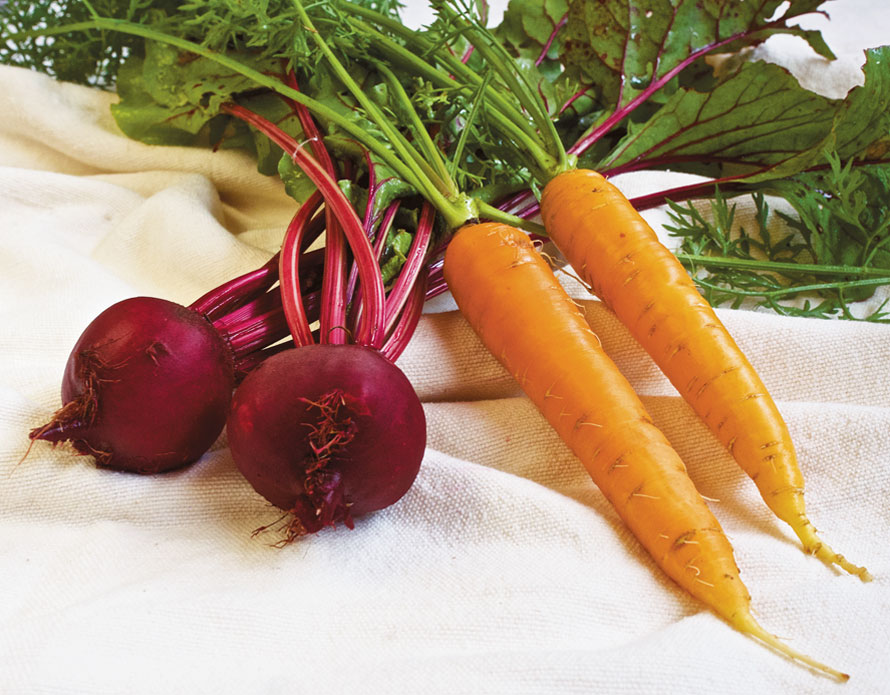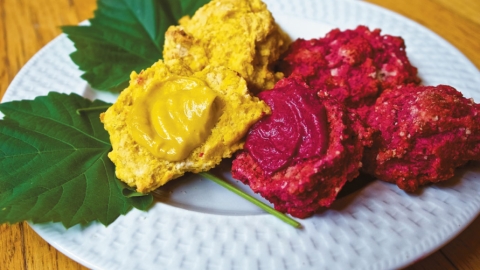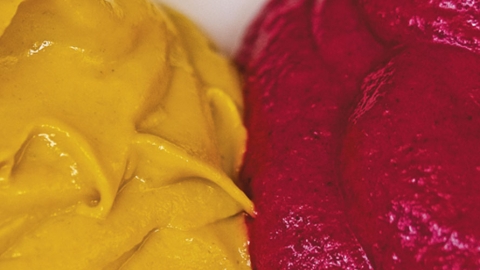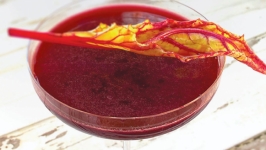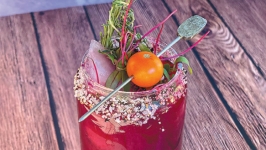Eating More Carrots and Beets
Let us start with a brief history of medicine and nutrition:
Source: carrotmuseum.com
I’m sure you’ve heard that carrots and beets are healthy foods, high in vitamin A and iron and all. I knew that stuff, but I hadn’t heard the recent findings on how they’re an important part of a diverse, healthy diet.
I think you’ll like these two delicious, colorful and healthy recipes: Brilliant Butter and Carrot/Beet Biscuits. Brilliant Butter is a spread based on puréed carrots or beets and is a satisfying butter replacement. The biscuits are surprising—traditional buttermilk biscuits but with a bright red (beet) or golden (carrot) color.
I developed these recipes to show how exciting carrots and beets can be and to provide myself with a butter-like spread that is healthy and plant based. Both recipes are fun and tasty. I hope you find the time to try them out. Maybe you’ll make them regulars like I do.
The Power of Beets: Nitric Oxide and Betalains
Beets contain naturally occurring nitrate, which is converted to nitric oxide in the body. Nitric oxide expands blood vessels, increases blood flow, decreases plaque buildup and reduces blood clots. Don’t confuse natural plant nitrates with nitrates added to meats as a preservative.
That is only part of the beet story! Beets are a strong source of betalains a class of pigments (colors) found in plants. Betalains have powerful antioxidant properties that remove free radicals and toxins and reduce chronic inflammation.
Fun fact: The only known source of all 24 naturally occurring betalains is the fruit of the prickly pear cactus (Nopal opuntia), which is touted to reduce the severity of a hangover. (Of course, the best treatment is to avoid the hangover altogether by drinking less.)
Next week I’m going backpacking in the high Sierra. I’ll be munching beet chips. I’m going to need that beet boost on the trail. Don’t be alarmed if beets turn your urine red. This is a harmless and temporary condition.
The Power of Carrots: Carotenoids
Carrots contain carotenoids, a class of plant chemicals that help plants absorb light energy for use in photosynthesis. They also have powerful effects on the human body mostly attributed to their antioxidant function of deactivating free radicals.
I’m going to remember to make carrots a part of my daily diet—raw, cooked or juiced. This morning for breakfast I added carrots to the fried potatoes and they were quite good.
The Power of Whole Foods
It’s clear that nutritional plant components create a natural synergy that boosts their power and reduces side effects. Get your carotenoids, betalains, nitrates and other nutrients from food, not from supplements. Don’t take pills—eat whole foods.


